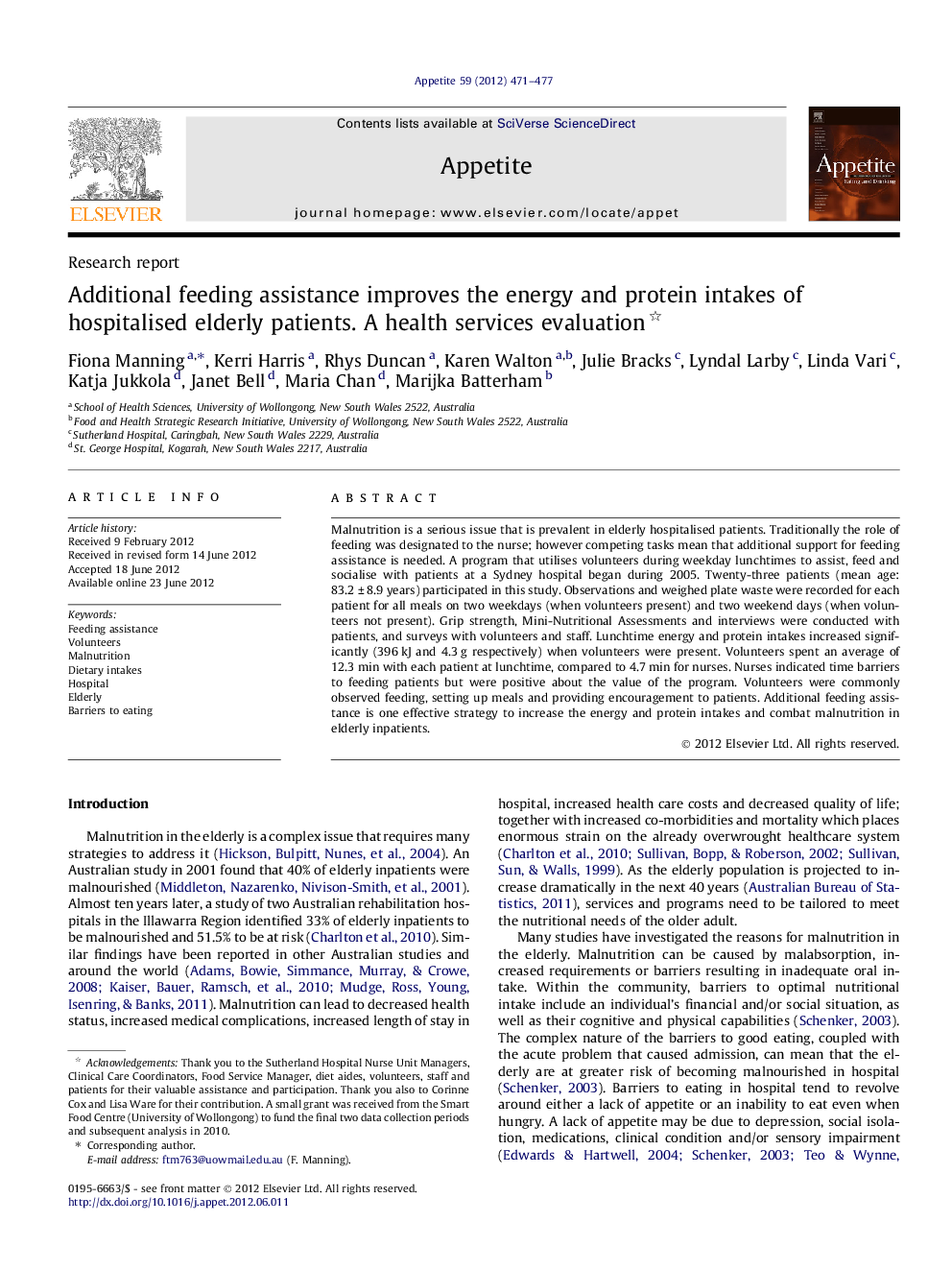| Article ID | Journal | Published Year | Pages | File Type |
|---|---|---|---|---|
| 939968 | Appetite | 2012 | 7 Pages |
Malnutrition is a serious issue that is prevalent in elderly hospitalised patients. Traditionally the role of feeding was designated to the nurse; however competing tasks mean that additional support for feeding assistance is needed. A program that utilises volunteers during weekday lunchtimes to assist, feed and socialise with patients at a Sydney hospital began during 2005. Twenty-three patients (mean age: 83.2 ± 8.9 years) participated in this study. Observations and weighed plate waste were recorded for each patient for all meals on two weekdays (when volunteers present) and two weekend days (when volunteers not present). Grip strength, Mini-Nutritional Assessments and interviews were conducted with patients, and surveys with volunteers and staff. Lunchtime energy and protein intakes increased significantly (396 kJ and 4.3 g respectively) when volunteers were present. Volunteers spent an average of 12.3 min with each patient at lunchtime, compared to 4.7 min for nurses. Nurses indicated time barriers to feeding patients but were positive about the value of the program. Volunteers were commonly observed feeding, setting up meals and providing encouragement to patients. Additional feeding assistance is one effective strategy to increase the energy and protein intakes and combat malnutrition in elderly inpatients.
• Volunteers can increase energy and protein intake in elderly at-risk patients. • Volunteer feeding can improve daily intake toward energy and protein requirements. • Volunteers spent over double the time assisting and feeding patients than nurses. • Volunteers provided setting up assistance, feeding and encouragement to patients.
